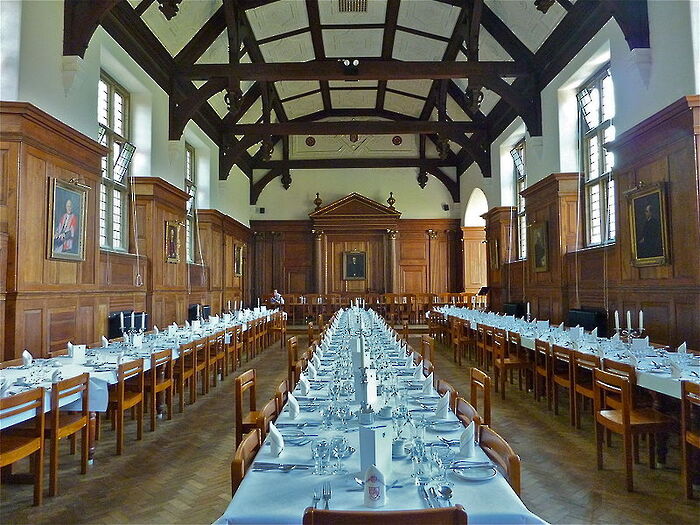After intense activism, we must all learn to self-critique
Both Cambridge student activists and their critics must reflect to create sustained change and support minority voices, argues Ning Sang Jessica Tan

As a result of last term’s strikes, impressive coordination between staff and students led to the University administration agreeing to listed demands. However, it has also led to increased alienation between the activist left and the broader student population. Indeed, the strikes further raised many issues besides the pension dispute, including divestment, the marketisation of education, and the BME access/attainment gap, to name but a few. The breadth and complexity of these issues show that engagement in student politics must extend beyond the left; the left’s greatest strength of organising collective action must overcome its greatest weakness of social alienation. To overcome such a weakness, both sides have a profound role to play that depends on their abilities for self-critique.
To the activist community: call-out culture of essentialising, invalidating, and dehumanising people deemed to lack ‘good politics’, or the ‘right’ opinion, must stop. We were not born with the political convictions that inspire our activism; each of us developed them through exposure to unjust histories and contemporary realities. Insofar as our politics were informed by critical theory, we must recognise that such readings are comparatively niche, mostly (and unfortunately) not covered in curriculum, and largely inaccessible to students outside of humanities or select social sciences. We as an activist community must actively extend outwards to work against the stereotype of having thin skin and hard hearts and instead become people known for our thick skin and soft hearts.
The conversation does not ‘begin’ at the meeting table: minorities have, for centuries, been listening silently to gender- and race-exclusive conversations
Equally, we must be critical of those who decry activists as ‘angry snowflakes’, suggesting equality has largely been achieved already. It is true that, in the past century, minorities have been given formal political and legal freedoms. However, substantively speaking, how do minorities exercise these ‘neutral’ rights that are built on historically race- and gender-exclusive European legal, political, and philosophical constructs? Theories of liberation explicitly excluded marginalised groups from their conception of humanity. From Hegel to Kant, ‘universal’ rights are in reality based on the white male experience.
Oxbridge is the perfect example of how these are institutionalised: ‘neutral’ meritocratic structures like admission processes, curriculum content, and examination style continue to center and normalise the experience and qualities associated with upper-class white males as the standard of acceptance.
Any criticism of angry activists must recognise that minorities are constantly (re)negotiating, (re)defining, and (re)envisioning the terms of their humanity and liberation without the aid of millennia of intellectual history. Some days, the frustration of feeling unable to access freedom is channeled into writing and organising. Other days, the frustration of not having language to articulate myself erupts into despair that angrily blames history, people, and institutions for my confusion. Though I believe activists must find healthier ways to process their anger, those denoting angry snowflakes as unreasonable and irrational must recognise that they are continuing the political and philosophical tradition of excluding minorities from humanity.
On both sides of the Atlantic, the moral imperative posed by activists decrying racism, sexism, and capitalism on university campuses has led to crises in national consciousness. We have become experts at dehumanising the ‘other’, when presumably our collective vision of democracy ought to be to recognise the full humanity of every person.
Particularly in the age of social media micro-targeting and echo chambers, there is a need for physical engagement and conversation between ideologically opposed camps that goes far beyond discussing issues of substantive injustice – it is a need to re-learn how to see the ‘other’ as human.
But the conversation does not ‘begin’ at the meeting table: minorities have, for centuries, been listening silently to gender- and race-exclusive conversations. A conversation about substantially including minorities in majority spaces requires privileging the minority voice. Minorities must be given the opportunity to stand up and speak while others sit down and listen. This is not about silencing majority voices, but about accounting for the effect that centuries of silencing minority voices has had.
In universities, debate should acknowledge that existing curriculum provide space for mainstream liberal and conservative arguments, but that additional critical reading is necessary to develop minorities’ terms of the debate in spaces like decolonisation.
And such a conversation must be a conversation. Activists must recognise that (constructive) criticism is necessary to create rigorously considered solutions; it is about having enough patience to listen and assign value to an idea’s content rather than focusing solely on the speaker’s identity.
We are in a critical juncture of history where campus politics have gained (inter)national significance. I have argued that the strategy moving forward is active engagement between ideologically opposed camps, privileging minority voices. However, as one among only a handful of BME students at the recent, well-attended CUSU Council meeting which discussed the proposal of student refunds following last terms’ staff strikes, it became clear to me that Cambridge’s existing ‘neutral’ democratic structures of institutionalised student politics is not yet a site for such minority-centered engagement.
Within our University, we need to create minority-centric, public platforms of student engagement that are empirically and not only theoretically open to all students, going beyond liberation campaigns that specifically cater to self-identifying minorities. Through such spaces, I hope that we grow in our individual and collective propensity to grieve the pain of our past while also hoping for and imagining new possibilities for our future.
 Features / How sweet is the en-suite deal?13 January 2026
Features / How sweet is the en-suite deal?13 January 2026 Arts / Fact-checking R.F. Kuang’s Katabasis13 January 2026
Arts / Fact-checking R.F. Kuang’s Katabasis13 January 2026 News / SU sabbs join calls condemning Israeli attack on West Bank university13 January 2026
News / SU sabbs join calls condemning Israeli attack on West Bank university13 January 2026 Comment / Will the town and gown divide ever truly be resolved?12 January 2026
Comment / Will the town and gown divide ever truly be resolved?12 January 2026 News / 20 vet organisations sign letter backing Cam vet course13 January 2026
News / 20 vet organisations sign letter backing Cam vet course13 January 2026










